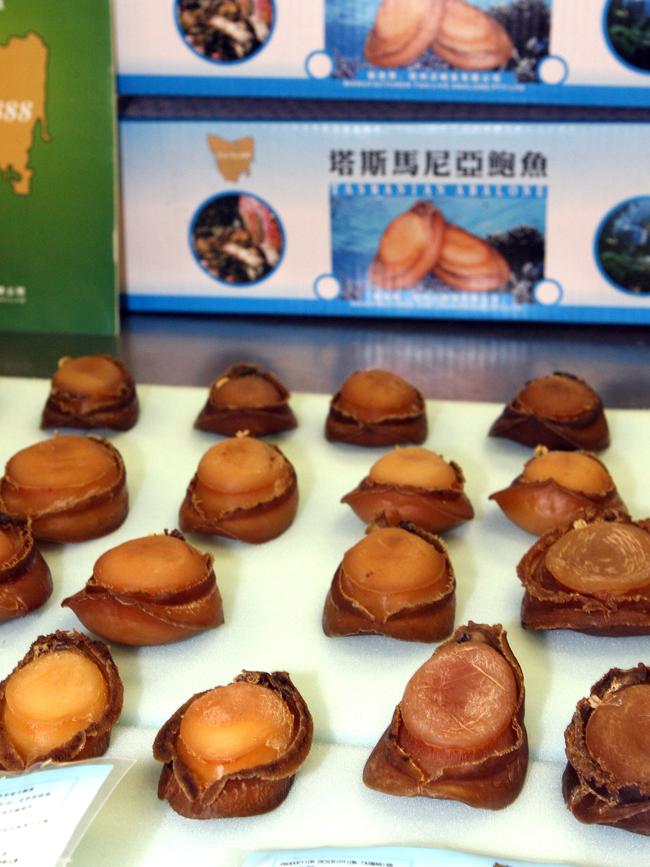Gold Coast businessman David Wei Meng Lee owes $1.2M in fines
The Gold Coast businessman has owed the Tasmanian state government more than a million dollars in fines since he was found guilty of an elaborate black market scam trading Abalone.
Crime & Justice
Don't miss out on the headlines from Crime & Justice. Followed categories will be added to My News.
THE Tasmanian government may never receive more than $1 million in unpaid fines owed to them by a Gold Coast businessman after it was revealed he had left the country.
Former Ashmore resident, David Wei Meng Lee, has owed the Tasmanian state government $1.2 million in fines since he was found guilty in 2006 of trading up to 10,000 black market abalones between 2001 and 2002 in a large-scale scam.
Gold Coast man convicted of illegal possession of fish loses appeal
Two Latvian admit defrauding $175,000 in online shopping scam
Mr Lee, then 48, was one of 17 people charged in the abalone trafficking ring and was given the $1.22 million special pecuniary penalty – one of Tasmania’s largest ever fines - for his role after being found guilty of five counts of illegal possession of fish.
His name continues to top a public ‘name and shame’ list recently released by Tasmania’s Monetary Penalties Enforcement Service revealing those with outstanding fines and infringement notices, but authorities have not known his whereabouts for a number of years.
A Tasmanian Department of Justice spokesman today said although Mr Lee’s matter was kept under review, no further resources were being invested.
“Mr Lee’s matter is kept under review, however as it is our current understanding that Mr Lee resides outside of Australia, no action is planned,” he said.
He said he did not know where Mr Lee, originally from Malaysia, was now living.


During Mr Lee’s 2006 trial in Hobart, prosecutors told the Supreme Court of Tasmania that illegal, dried abalone was sent from that state to Mr Lee’s business in Southport in boxes with “dodgy, fictitious names” and camouflaged as household goods.
The delicacy was then packaged into smaller packets and sold to Asian tourists bussed to the Olympic Circuit business, then-named WK Trading.
Prosecutors also said Mr Lee agreed to abalone deliveries without the necessary documentation, despite having previously been warned by fisheries officers and police in November, 2001, of the legal requirements for dealing in the edible mollusc.
Mr Lee, who emigrated to Australia from Malaysia when he was 27, was one of 17 people charged following Operation Oakum, one of Tasmania’s biggest fisheries investigations.
All except two either pleaded guilty or were found guilty.
One person fled the state and another had his case sent to Victoria, according to the Hobart Mercury.
Nearly 8000 fine defaulters rack up millions in debt
Building fraud taskforce ready to roll
Mr Lee also received a jail sentence of 15 months, with 12 months suspended and was ordered to pay $20,000 of his penalty within 14 days of his release from prison.
Justice Shan Tennant acknowledged in court in 2006 that it was unlikely Mr Lee would be able to pay such a large fine but that the sentence had to reflect the seriousness of the offence, stating abalone was of valuable economic importance to Tasmania.
The Gold Coast Bulletin reported in 2005 that black market abalone sold on the Gold Coast for about $100 a packet with the legal retail price at $240 a kilogram at the time.
Mr Lee, who lived in Ashmore at the time of his arrest, had disappeared by 2008, according to media reports.

In 2016, the Tasmanian Monetary Penalties Enforcement Scheme director Seth Hills told the Hobart Mercury that attempts to trace Mr Lee were ongoing at that time.
In Queensland, the total value of outstanding debts owed to the State Penalties Enforcement Registry was more than $1.2 billion as of September.
More than $7 million of that was said to be from unpaid tolls and fines, but Queensland privacy laws prevent names of those owing from being released, unlike in Tasmania.
In November, SPER records showed the state’s top debtor had racked up six unpaid debts totalling $4.5 million.
According to the government figures, the second top debtor owes $1.25m for six unpaid debts, followed by another debtor that has one outstanding debt reaching nearly $600,000.
Rounding out the top five was a debtor that had a bill of $500,207 as well as another who owed $466,068.
The government was unable to confirm if the top five debtors were individuals or companies due to the privacy laws.
Tasmania supplies one quarter of the world’s wild abalone and makes $120 million in export revenue each year from the edible molluscs.
Under the Living Marine Resources Management Act 1995, people caught illegally taking or possessing fish face a special penalty equal to 10 times the value of the fish.


